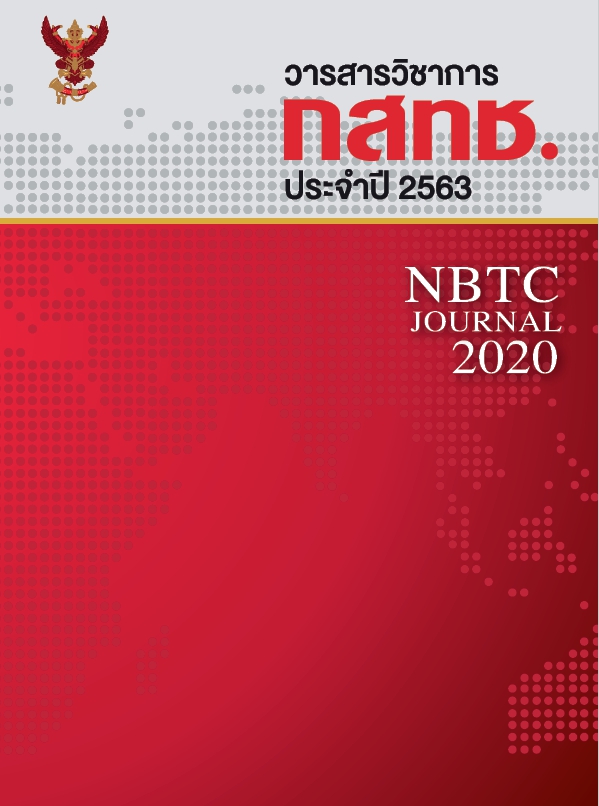Social Conflict in Thailand: an Impact of Changing Media Landscape
Keywords:
New media, Old media, Biased development, Social analysis, CapitalismAbstract
This article aims to examine Thailand’s recent political conflict and the interplay between the factors that have given rise to the conflict: the pervasion of New Media, the generational experience of its young recipients, the long-lasting impact of Thailand’s biased development strategy, the problematic use of theories in social analysis, and the development of Thai media under capitalism. Each factor is then analyzed by literature review before a conclusion is drawn. The study found that the New Media is responsible of its recipients’ shortened attention span and tendency to making quick judgments. Part of the protesters belongs to a generation predisposed to egocentric worldviews that contributes to their dissatisfaction with Thai society. Their perception of unequal Thai society stems from the contrast between urban and rural areas resulting from Thailand’s biased development strategy. The problematic use of micro sociological theories and System Theory in social analysis, lacking macro perspective, also led the protesters to view Thai society as divided into upper and lower class. In addition, the development of Old Media under capitalism made it incapable of catering to the content demands of Thai middle class and thus turning young adults further away from Old Media to the New Media. In light of the findings, the article suggests alleviating the Old Media’s constraints under capitalism and enabling it to improve content quality in order to regain the audience it lost to the New Media, helping digital TV reclaim eyeballs from cable and satellite TV, and promoting quality news coverage.
References
ชวรงค์ ลิมป์ปัทมปาณี, บก. (2551). พระราชบัญญัติจดแจ้งการพิมพ์ พ.ศ. 2550. กรุงเทพฯ: 6 องค์กรวิชาชีพสื่อ.
“พระราชบัญญัติองค์กรจัดสรรคลื่นความถี่และกำกับการประกอบกิจการวิทยุกระจายเสียง วิทยุโทรทัศน์ และกิจการโทรคมนาคม พ.ศ. 2553” (2553, 19 ธันวาคม). ราชกิจจานุเบกษา. เล่ม 127/ตอนที่ 78 ก/หน้า 1
“พระราชบัญญัติการประกอบกิจการกระจายเสียงและกิจการโทรทัศน์ พ.ศ. 2551” (2551, 4 มีนาคม) ราชกิจจานุเบกษา. เล่ม 125/ตอนที่ 42 ก/หน้า 1
Ciampaglia, G. L., & Menczer, F. (2018). Misinformation and biases infect social media, both intentionally and accidentally. Retrieved September 30, 2020 from https://phys.org/news/2018- 06-misinformation-biases-infect-social-media.html
Feng, Ling & Hu, Yanqing & Li, Baowen & Stanley, H. & Havlin, Shlomo & Braunstein, Lidia. (2014). Competing for Attention in Social Media under Information Overload Conditions. PloS one. 10. 10.1371/journal.pone.0126090.
Gaber, A. (Producer & Director). (2012). It’s All About ME [Documentary]. Canada: ABUGABER CANADA INC./ Gaber Productions
Bodman, D. A. (2017). Generation Who: Connecting with Our Youth. Retrieved September 28, 2020 from https://emerituscollege.asu.edu/sites/default/files/ecdw/EVoice21/bodman21.html
All About the “Silent” Generation. (2019). Retrieved September 28, 2020 from https://www.indeed.com/career-advice/career-development/generation-of-silents
Sheehan, Paul (2011). "Greed of boomers led us to a total bust". The Sydney Morning Herald. Archived from the original on May 21, 2019. Retrieved September 9, 2020 from https://www.smh.com.au/politics/federal/greed-of-boomers-led-us-to-total-bust-20110925-1krki.html
Allen, J. The Unique Cultural Identity of Baby Boomers. (2013). Patch. Retrieved September 28, 2020 from https://patch.com/california/delmar-carmelvalley/bp--the-unique-cultural-identity-of-baby-boomers
Gabriel, T. How to Tell If You’re Part of ‘Generation Jones’ (2020). Considerable. Retrieved September 28, 2020 from https://www.considerable.com/life/people/generation-jones-group-boomers-gen-x/
Braly, A. (2009). "'Generation Jones' soon to have its man in Washington". Chattanooga Times Free Press. Retrieved September 28, 2020 from https://www.timesfreepress.com/news/news/story/2009/jan/18/generation-jones-soon-have-its-man-washington/204052/
Marcin, H. (2018). How the latchkey generation fought for work-life balance—and lost. The Genx Manager. Retrieved September 28, 2020 from https://thegenxmanager.com/2018/02/02/latchkey- generation-fought-work-life-balance-lost/
Anderson J. & Rainie L., (2012) Millennials will benefit and suffer due to their hyperconnected lives. Pew Research Center. Retrieved September 28, 2020 from https://www.pewresearch.org/internet/2012/02/29/millennials-will-benefit-and-suffer-due-to-their-hyperconnected-lives/
Farmer J. (2020). US government media chief undermines Hong Kong protesters, say officials. South China Morning Post. https://www.scmp.com/article/982548/generation-y-disloyalty-remains-big-challenge
Main, D. (2017) Who Are the Millennials?. Livescience. Retrieved September 28, 2020 from https://www.livescience.com/38061-millennials-generation-y.html
Jenkins, R. (n.d.). How Generation Z Uses Technology and Social Media. Ryan Jenkins. Retrieved September 28, 2020 from https://blog.ryan-jenkins.com/how-generation-z-uses-technology-and-social-media
Lythcott-Haims, J. (2015). How to raise an adult: Break free of the overparenting trap and prepare your kid for success. New York: Henry Holt and Co.
Twenge, J. M., & Campbell, W. K. (2009). The narcissism epidemic: Living in the age of entitlement. New York: Free Press.
Bialik K. & Fry R. (2019). Millennial life: How young adulthood today compares with prior generations. Pew Research Center. Retrieved September 28, 2020 from https://www.pewsocialtrends.org/essay/millennial-life-how-young-adulthood-today-compares-with-prior-generations/
Hayes, A. (2019). Boomer Effect (Baby Boomer Factor). Investopia. Retrieved September 28, 2020 from https://www.investopedia.com/terms/b/boomer-effect-baby-boomer-factor.asp
Siriprachai, S. (2009). The Thai Economy: Structural Changes and Challenges Ahead. In Thammasat Economic Journal. (27)1 p.118-229
Dixon, C. (1999). THE THAI ECONOMY Uneven development and internationalization. New York: Routledge.
Dixon, C. (1999). THE THAI ECONOMY Uneven development and internationalization. New York: Routledge.
Plecher, H. (2020). Thailand - share of economic sectors in the gross domestic product 2019. [Data Sheet] Retrieved September 28, 2020 from https://www.statista.com/statistics/331893/share-of-economic-sectors-in-the-gdp-in-thailand/
Giddens, A. (2009). Sociology. (6th ed.). Malden, MA: Polity Press
Giddens, A. (2009). Sociology. (6th ed.). Malden, MA: Polity Press
Giddens, A. (2009). Sociology. (6th ed.). Malden, MA: Polity Press
Wolff, J. (2017). Karl Marx. Retrieved September 30, 2020 from https://plato.stanford.edu/entries/marx/
Evers, H.-D. (1973). Group conflict and class formation in South-East Asia. H.-D. Evers (Hd.), Modernization in South-East Asia. Oxford University Press: Kuala Lumpur
Downloads
Published
How to Cite
Issue
Section
License
The Office of the NBTC holds the copyright of articles appearing in the journal. The Office of the NBTC allows the public or individuals to distribute, copy, or republish the work under a Creative Commons license (CC), with attribution (BY), No Derivatives (ND) and NonCommercial (NC); unless written permission is received from the Office of the NBTC.
Text, tables, and figures that appear in articles accepted for publication in this journal are personal opinion and responsibility of the author, and not binding on the NBTC and the Office of the NBTC. In case of errors, each author is solely responsible for their own article, and not concerning the NBTC and the NBTC Office in any way.



